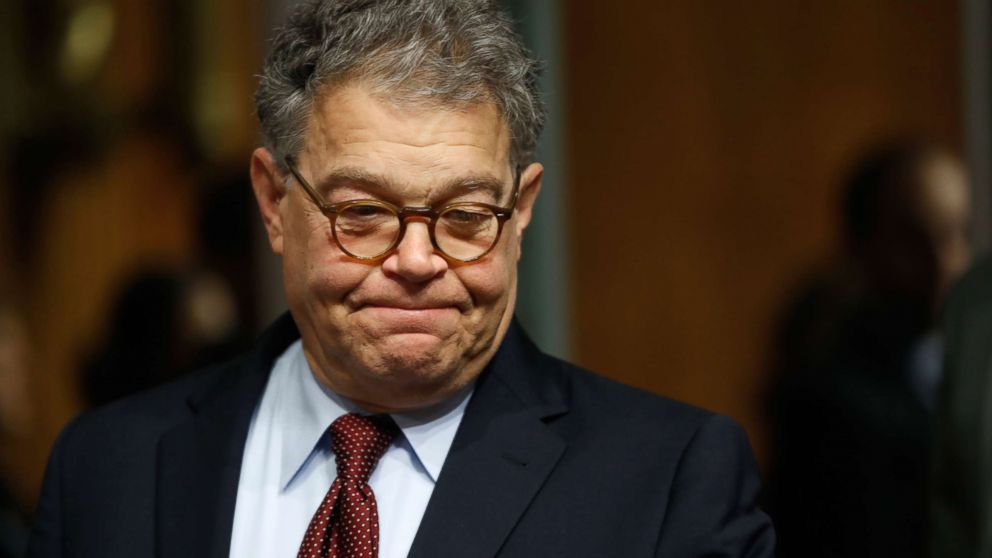How a Senate ethics investigation works
Top Senate leaders have called for an ethics review of Sen. Al Franken.

— -- Top leaders in the Senate are calling for a Senate Ethics Committee review of Sen. Al Franken, D-Minn., who was recently accused of forcibly kissing a woman and appearing to grope her while she slept.
The committee has not announced whether it will pursue a preliminary inquiry into the alleged incidents, which took place before he joined the Senate when he was on an overseas USO tour, but Franken has welcomed an investigation, saying he’d “gladly cooperate.” Franken has also apologized to his accuser, saying he remembers their encounter differently but is "ashamed that my actions ruined that experience for you."
On Thursday, the committee announced it would resume its preliminary inquiry into misconduct by Sen. Bob Menendez, D-N.J., whose federal bribery trial ended in a mistrial. Senate Majority Leader Mitch McConnell, R-Ky., has also said if Republican Alabama Senate candidate Roy Moore is elected in December to fill Attorney General Jeff Sessions' empty seat, he would likely face an ethics review given the allegations of sexual misconduct against him. Moore has denied all the allegations.
Here’s a look at how a Senate Ethics Committee review would unfold, if and when one occurs:
Who serves on the committee?
There are six members on the committee -- Chair Johnny Isakson, R-Ga.; Vice Chair Chris Coons, D-Del.; Sen. Jim Risch, R-Ind.; Sen. Pat Roberts, R-Kan.; Sen. Brian Schatz, D-Hawaii; and Sen. Jeanne Shaheen, D-N.H.
Launching a preliminary inquiry
Upon the receipt of a complaint or allegation of misconduct, the committee would first decide whether to conduct a preliminary inquiry to determine whether a violation occurred.
A preliminary inquiry is similar to grand jury proceedings and could include interviews, subpoenas and depositions. It could last as long or short as the committee needs to conduct its fact-finding.
After receiving a final confidential report with the findings and recommendations, the committee would then vote to either dismiss the matter, issue a public or private letter of admonition, or to begin an adjudicatory review.
Conducting an adjudicatory review
According to the committee's Rules of Procedure, an adjudicatory review is conducted after finding “there is substantial cause for the committee to conclude that a violation within the jurisdiction of the committee has occurred.”
An adjudicatory review can be performed by outside counsel or by the committee staff. It would consist of interviews and sworn statements and could include a public hearing.
Upon completion of the review and following a final report, the committee would prepare a report for the Senate, which would include a recommendation if disciplinary action should be pursued. The final report and recommendation of the committee would then be made public, unless the committee votes to keep it confidential.
Potential disciplinary action
Potential disciplinary action recommendations could include expulsion, censure and/or payment of restitution. Expulsion would require a two-thirds vote in the Senate.
Does the committee have jurisdiction to look into pre-Senate allegations?
The allegations against Franken occurred prior to his becoming a U.S. senator. Would the committee still have jurisdiction in a case predating someone's time in the Senate?
The answer is yes -- but it hasn’t happened in modern times, according to Robert Walker, who previously served as chief counsel and staff director on the Senate Ethics Committee from 2003 to 2008.
Walker said he’s unaware of any modern ethics inquiry that stemmed from allegations predating a senator’s time in office but says the committee has left open its ability to consider cases prior to one’s service.
“The committee has specifically left this an open issue such that in any given case it's up to the committee whether they want to look into pre-Senate conduct,” he said.




